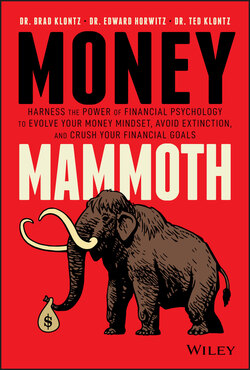Читать книгу Money Mammoth - Ted Klontz - Страница 35
PARENTS KNOW BEST?
ОглавлениеWhen we are young, we see our parents as people who always know the answers. That's probably why as soon as we can think independently, around the ages of 4–5, we start asking a lot of questions. Parents try to answer these questions in a way that a young mind can comprehend and in a way that is likely to end the barrage of questions. However, when it comes to learning lessons about money, our parents' answers to these questions get written into a money blueprint. Even worse, a passing comment about money in the kitchen or at the dinner table can have a lasting effect. For example, a common phrase used by parents in response to a child's request for something is “No, we can't afford that.” Think for a moment about how a young mind might interpret that. The message could be interpreted as “we don't have enough money” or “there isn't enough money.” These Money Scripts® can lead to an entire life designed around making sure there is always enough money through an obsession around work. It could lead to someone feeling deprived and a propensity for overspending in adulthood to avoid the feeling of deprivation. It could also lead to a sense of learned helplessness; the logic being that since there isn't enough money, why bother trying to save or get ahead?
Innocent answers and simple reasoning can become the basis for our financial decision-making well into adulthood. Since money is not talked about overtly in many families, these simple misunderstandings or misinterpretation can often go unexamined. Probably not the best way to base sound financial decision-making for generations. Our parents' money beliefs and behaviors are, of course, shaped by their parents and so on. These Money Scripts® get handed down generationally, influenced and shaped by the financial experiences of each generation. These flashpoints leave their mark and can change the path of family Money Scripts®.
